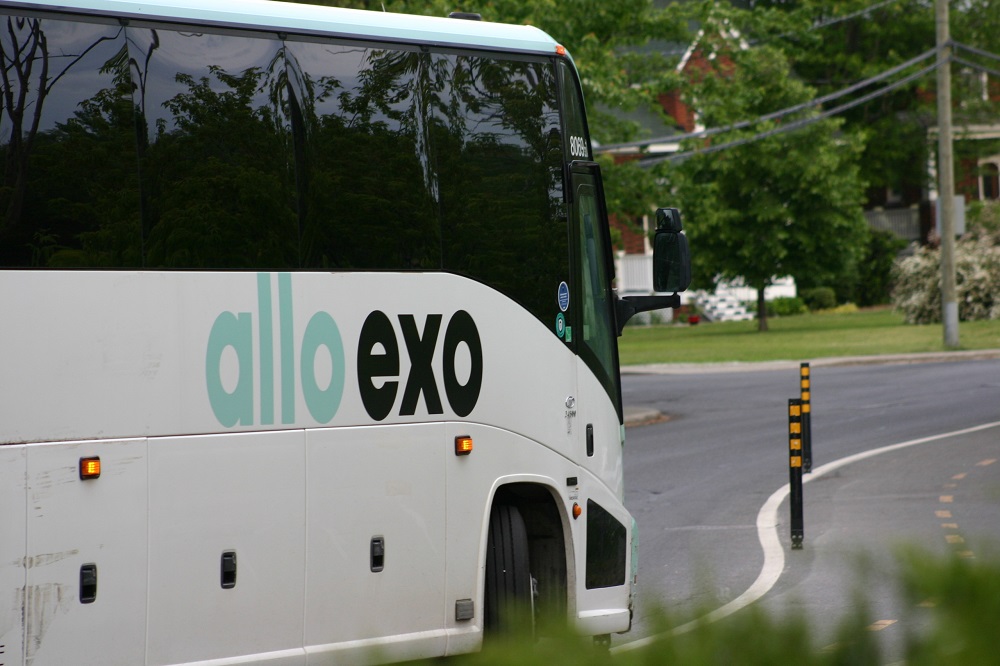Candidates’ proposals for public transport and mobility

In the Châteauguay area, public transport options are limited to the bus. (Photo : Archives)
Le Soleil de Châteauguay asked a question to the candidates of the five main parties in the Châteauguay riding. The Quebec Conservative Party did not respond. The answers are presented in alphabetical order..
In the Châteauguay area, public transport options are limited to the bus, with most routes only connecting to Montréal. What do you concretely propose to improve mobility in the district?
Translation Hortense Ferron-Lefebvre
Martin Bécotte, QS
Québec solidaire has published an ambitious plan to reduce greenhouse gas emissions to ensure a viable future for our children and that Quebec does its part to limit global warming to 1.5 degrees. Scientists say that this is irrevocably what must be done to avoid climate disruption.
We will invest heavily in the development of public transport and reduce fees by 50%.
Half of all Quebecers live in the Montréal area. This offers a high potential for greenhouse gas reduction, so that we don’t leave all the work and consequences of climate change to the next generation.
We will double the funding of transport companies, which will improve the quality of service, increase municipal routes, bus frequency, and add connections between the South Shore of Montréal and the district.
I am also committed to setting up a car sharing cooperative so that by 2030 there will be a shared vehicle every 250 metres from residences.
All of this will provide the opportunity for households to own a single vehicle and increase their disposable income by $10,000 per year.
Marie-Belle Gendron, CAQ
Public transit requires without a doubt a significant improvement. I have always lived in the area and my family grew up here. Soon, my children will be old enough to go to CEGEP and university. I am aware of the needs in this regard. We must ensure transportation to the educational centres located in Saint-Constant and Brossard, among others, and we will achieve this goal by optimizing and maximizing bus route coverage.
Public transit should not be an obstacle to our youth’s the educational choices nor to workers’ employment choices. On the contrary, it should provide an array of opportunities. Our government has increased investments to an all-time high—$56 billion in the last Quebec Infrastructure Plan —and we will continue to invest and work with the transport minister and partners to allow my fellow citizens to move around more efficiently throughout Montérégie and towards Montréal. This will have positive impacts on the economy, the environment, the access to essential services and the workforce.
Marianne Lafleur, PQ
The Parti Québécois is proposing an innovative and daring idea, the ClimatePass at a cost of $365 per year. This affordable proposal would make public transportation more accessible. The $1/day ClimatePass would allow access to all public transportation in Quebec.
With this would come an increase in the offer of public transport services. We are aiming for a strong increase in public transportation everywhere in Quebec and Châteauguay will be no exception. Students, workers, tourists, will all be able to benefit from it as much in the city as in outlying regions. In addition to improving mobility, this measure will lead to a large reduction in greenhouse gas emissions and will constitute a significant step to begin a real ecological transition.
Jean-François Primeau, QLP
To diversify public transportation services, various development possibilities have been discussed over the years.
In practical terms, to promote accessibility, we will introduce free admission for students and for seniors aged 65 and older.
It is also clear that the current public transportation offer does not reflect the east-west travel patterns generated by the opening of Highway 30. As a result, in times of shortage, our workforce is encouraged to gravitate outwards rather than towards our local businesses and institutions. As an example, many find our hospital inaccessible by public transportation.
The Quebec Liberal Party wants to improve public transit services in both metropolitan and regional areas. In our case, this means developing a local and regional service and, more specifically, a structuring service along the Highway 30 corridor from Salaberry-de-Valleyfield to Brossard.
We will also complete the Route Verte and continue efforts to secure road shoulders used by cyclists.
We will also establish a support program for the regional cab industry serving areas where sustainable mobility alternatives are more limited.